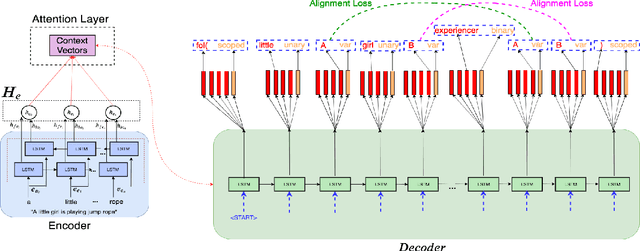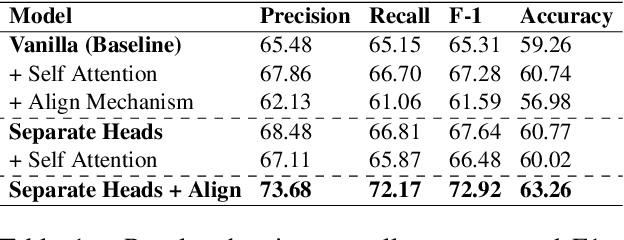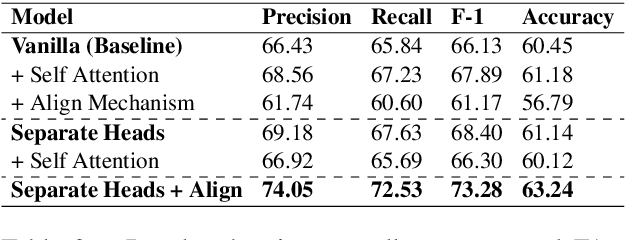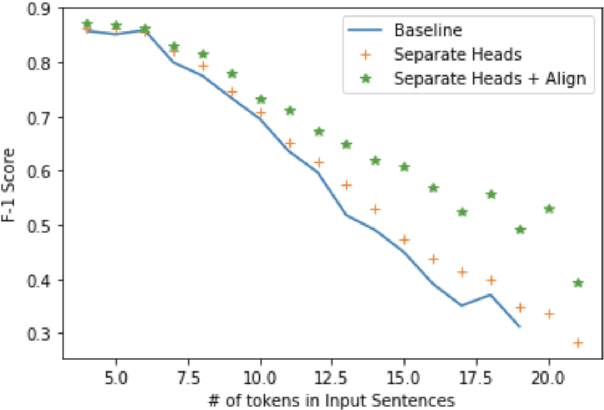Exploring Neural Models for Parsing Natural Language into First-Order Logic
Paper and Code
Feb 16, 2020



Semantic parsing is the task of obtaining machine-interpretable representations from natural language text. We consider one such formal representation - First-Order Logic (FOL) and explore the capability of neural models in parsing English sentences to FOL. We model FOL parsing as a sequence to sequence mapping task where given a natural language sentence, it is encoded into an intermediate representation using an LSTM followed by a decoder which sequentially generates the predicates in the corresponding FOL formula. We improve the standard encoder-decoder model by introducing a variable alignment mechanism that enables it to align variables across predicates in the predicted FOL. We further show the effectiveness of predicting the category of FOL entity - Unary, Binary, Variables and Scoped Entities, at each decoder step as an auxiliary task on improving the consistency of generated FOL. We perform rigorous evaluations and extensive ablations. We also aim to release our code as well as large scale FOL dataset along with models to aid further research in logic-based parsing and inference in NLP.
 Add to Chrome
Add to Chrome Add to Firefox
Add to Firefox Add to Edge
Add to Edge